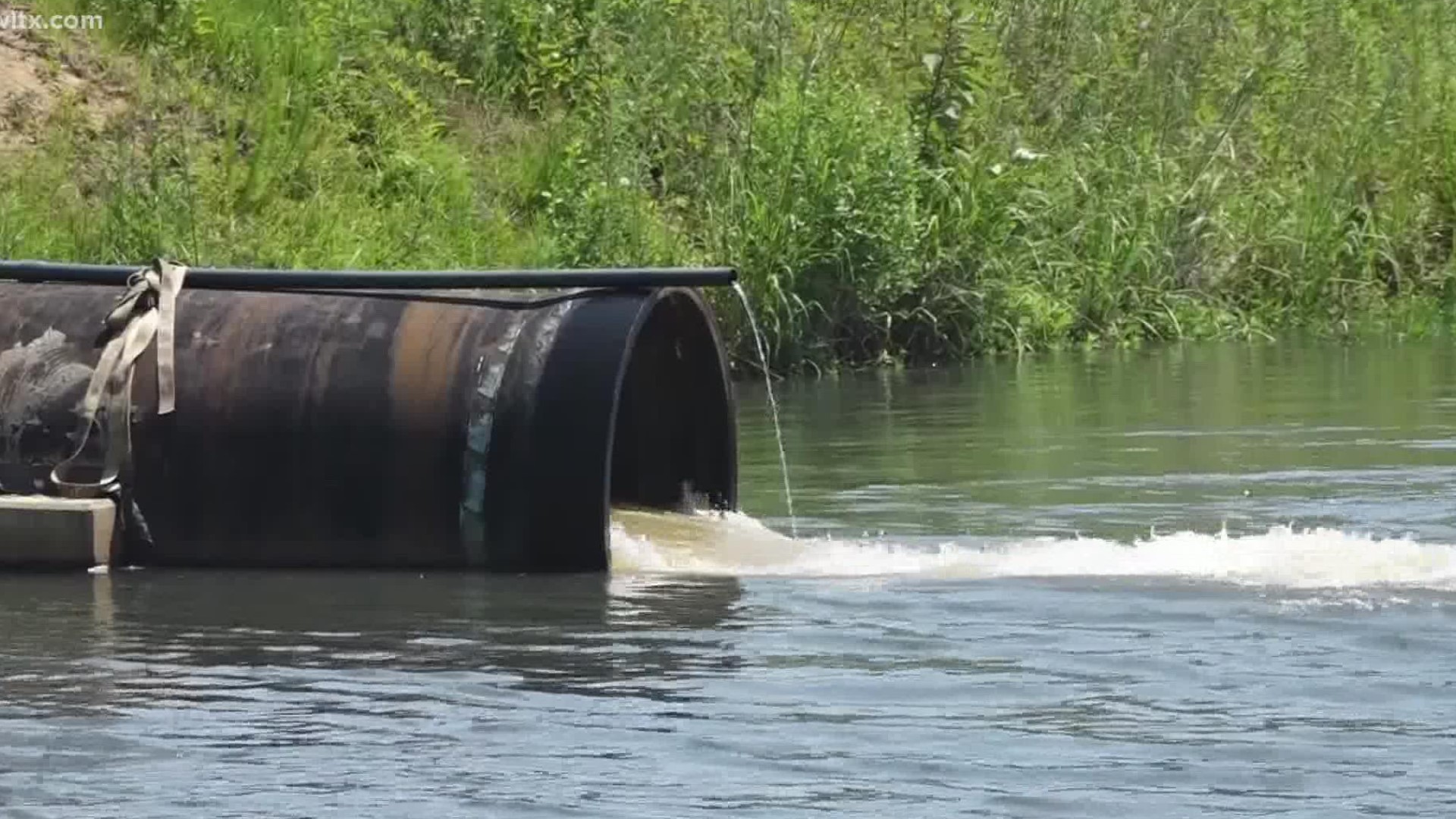COLUMBIA, S.C. — According to a new national study, rivers in South Carolina are testing positive for what are known as "Forever Chemicals."
Bill Stangler, the Riverkeeper for the Congaree River, along with a group of Riverkeepers from around the country recently conducted a study to count the level of PFAS in waters ways.
Often referred to as "forever chemicals," PFAS (perfluoroalkyl and polyfluoroalkyl substances), are chemicals used to make heat and water-resistant coating for clothing and kitchenware. The chemicals do not break down and seep into natural waterways from industrial plants, airports, or even groundwater runoff.
"More than 80% of the samples that were collected showed detections of those PFAS chemicals including both of the samples we collected on the Lower Saluda River right here," Stangler said. "Tiny amounts of these chemicals could potentially cause problems so we're measuring parts per trillion."
The abundance of PFAS concerns him as much of the Midlands receives its water from natural sources.
Stangler said that in order to protect people from ingesting these chemicals, companies will have to invest time and money.
"The drinking water utilities are going to have to start investing in better filtration to remove these chemicals from peoples' drinking water," he said. "And we want to eliminate it from the source. So, if there are folks that are discharging it, or however it's getting into our rivers, we want to find where that is and eliminate those sources."
Clint Shealy, the assistant city manager for Columbia Water, said PFAS is something to keep an eye on but added that, through intense filtration, Columbia water is still safe to drink, even with trace amounts of PFAS.
He notes that if the Environmental Protection Agency (EPA) changes its regulations, requiring filtration, the customers might see an increase in rates.
"Usually when that's done there's a timeframe for utilities to invest if needed, or to monitor, evaluate and invest into treatment improvements if that is necessary, he said."

